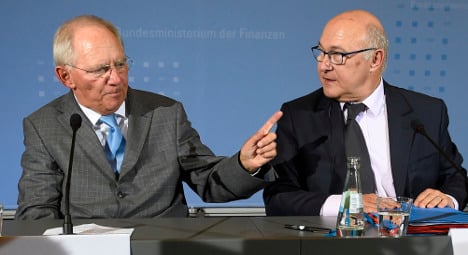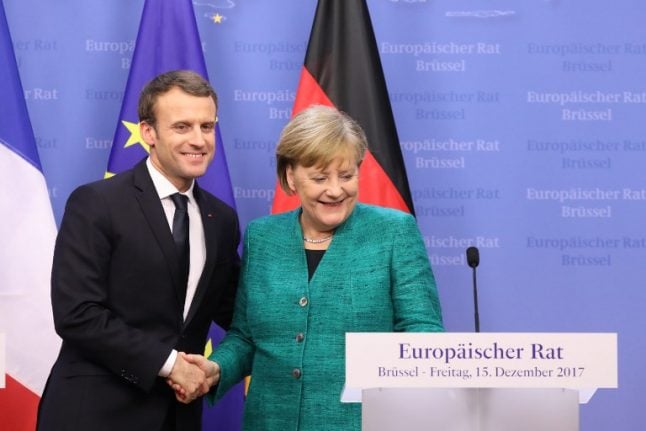Paris stressed that the proposals to be presented to both countries' economy ministers on Thursday is not government policy but merely "a report by two economists".
Under the proposals, France would make its labour rules, including the 35-hour week, more flexible in many sectors and seek to freeze wages for three years to make companies more competitive, reported Der Spiegel news weekly on Sunday
Germany would also double its infrastructure spending to 20 billion euros ($25 billion) by 2018, and the fast-ageing country would reform immigration rules and do more to get women into the workforce, according to the Spiegel report.
The road map plan for Europe's two biggest economies will be presented Thursday in Paris to German Economy Minister Sigmar Gabriel and his French counterpart Emmanuel Macron.
It is based on a government-commissioned study by Henrik Enderlein, head of the Jacques Delors Institute in Berlin, and Jean Pisani-Ferry, chief economic strategist of French Prime Minister Manuel Valls, said Der Spiegel.
A spokeswoman for the French economy ministry told AFP on Sunday that the plan does not represent proposals by the French and German governments but is "a report by two economists".
"This report is not finalised so it cannot be commented on at this stage," she added.
The proposals in the paper would represent a compromise between Berlin, which has long preached fiscal discipline in the crisis-hit EU, and Paris, which is grappling with high unemployment and a ballooning budget deficit and has been urging more stimulus spending.



 Please whitelist us to continue reading.
Please whitelist us to continue reading.
Member comments